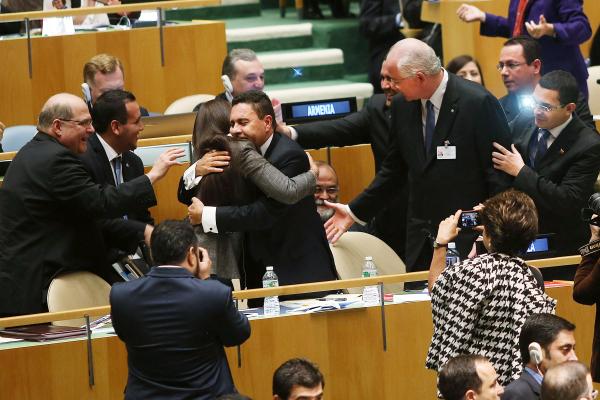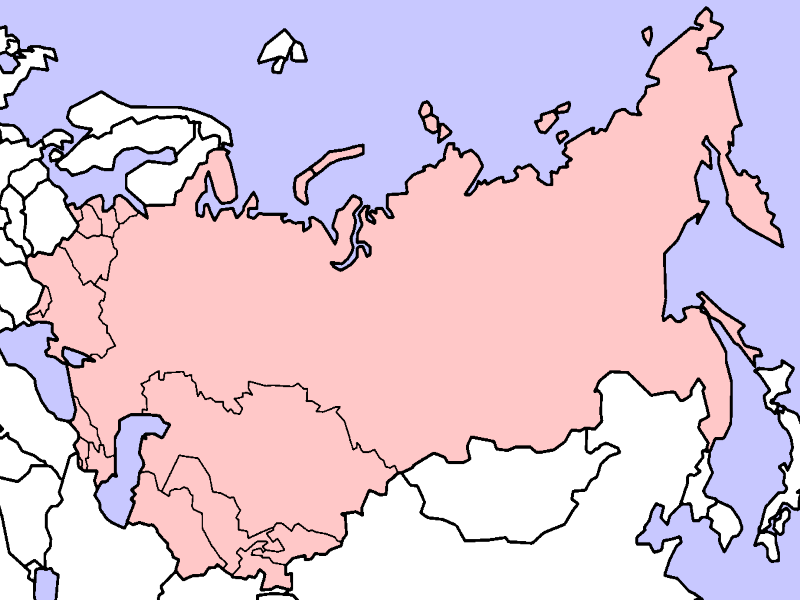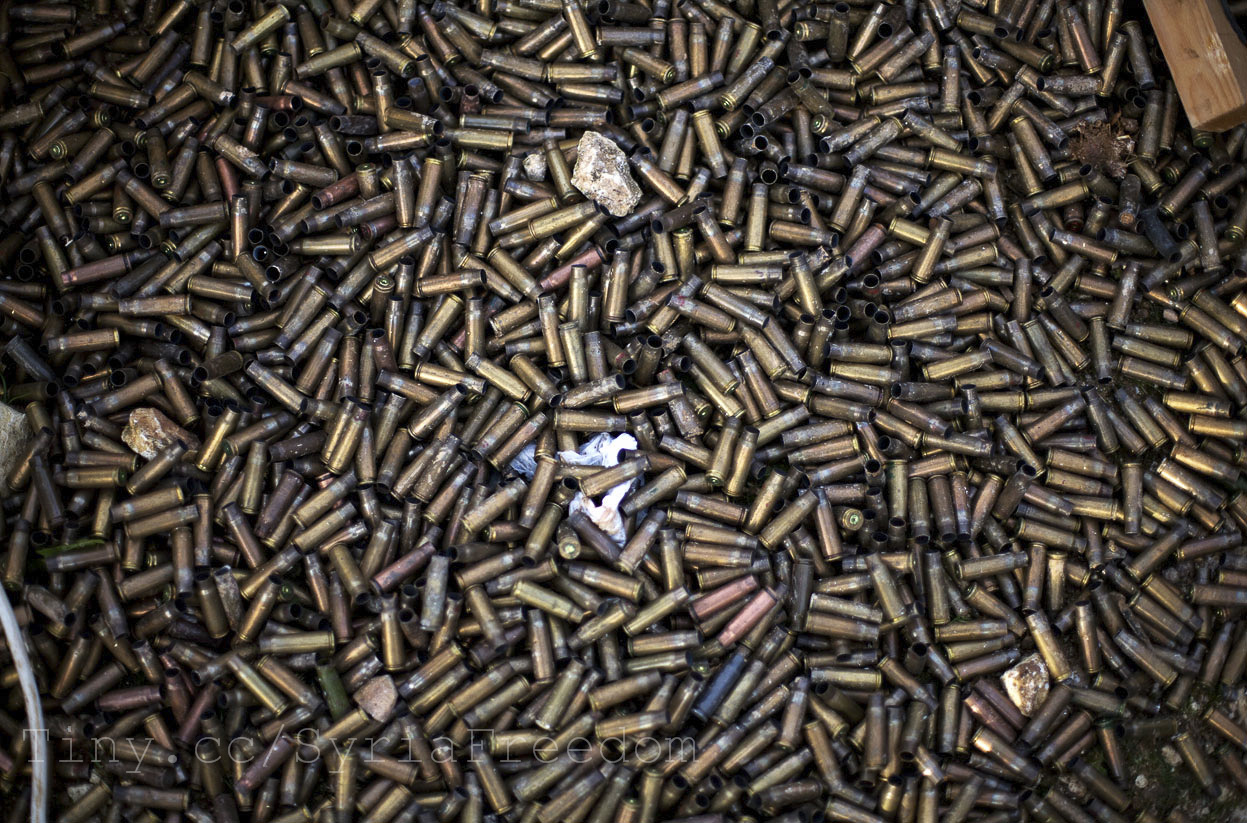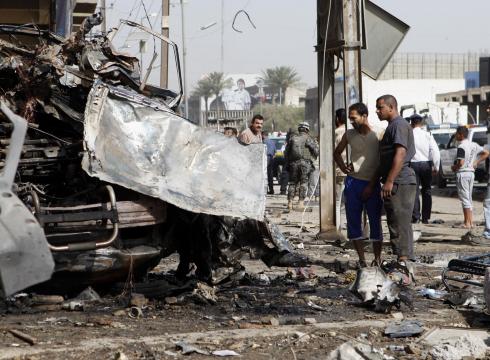
Venezuela was elected on October 15, 2014, to a two-year term on the U.N. Security Council, overcoming long-standing U.S. opposition. This sets the stage for a host of potential clashes over global security issue, at a time when the world needs to adopt a united approach to confront these challenges.
Venezuela received unanimous backing from a caucus of 33 Latin American and Caribbean nations, and overwhelming support in favor of its candidacy from 181 of the U.N.’s 193 members.
Venezuelan President Nicolás Maduro trumpeted the win as a global ratification of the country’s socialist revolution. Dedicating the victory to the late Commander Hugo Chávez, Maduro recalled the former leader’s failed 2006 quest for membership on the world body’s premier security panel.
Latin American support for Venezuelan membership seems to have diminished open U.S hostility, as it was previously displayed in 2006, when Washington successfully campaigned against the country’s bid. John Bolton, the U.S. ambassador to the U.N. at the time, vigorously lobbied members of the U.N. General Assembly, convinced Guatemala to run as an alternative candidate, and forced 47 rounds of voting (the third-longest vote in history for a UN Security Council Seat), before both countries withdrew in favour of Panama.
This year, while the State Department did indicate its opposition, no diplomatic maneuvers materialized. Analysts suspect that Venezuela’s declining political and economic influence in the region factored into the response of the current administration – or lack thereof.
Criticism
Venezuela’s victory at the U.N. has drawn the ire of human rights groups, activists, and concerned Western governments. Referring to the newly elected council, Philippe Bolopion, U.N. director at Human Rights Watch, expressed concern over “Venezuela’s tendency to side with abusive governments,” as it “makes it a less than ideal candidate to help manage the many human rights tragedies the Security Council is currently facing.”
Shockingly, despite the country’s record of human rights abuses, and its backing of serial human rights abusers, a majority of EU member states were among the 181 states that voted Venezuela onto the U.N. Security Council. According to Hillel Neuer, Executive Director of the Geneva-based UN Watch, “It is an outrage that at least 16 of 28 EU states…empowered and legitimized a repressive government,” one that has “trampled basic freedoms at home while aiding and abetting mass murderers such as Syria’s Bashar al-Assad, Iran’s Mahmoud Ahmadinejad and Libya’s Col. Muammar Qaddafi.”
In a statement released after the vote, U.S. Ambassador to the U.N., Samantha Power, expressed dissatisfaction with Latin American countries, which allowed Venezuela to run unopposed for the 2015-2016 seat. “Unfortunately, Venezuela’s conduct at the U.N. has run counter to the spirit of the U.N. Charter and its violations of human rights at home are at odds with the Charter’s letter.”
Implications
Venezuela’s diminished regional influence will not make the country any less of an impediment to U.S. interests. U.S. Rep. Ileana Ros-Lehtinen (R-FL), Chairman of the Middle East and North Africa Subcommittee, led a bipartisan letter to Secretary of State John Kerry and Ambassador Power, urging the Obama administration to oppose Venezuela’s bid. Many believe “allowing it a seat on the Security Council will legitimize and embolden this brutal regime and give it a platform from which it will attempt to undermine U.S. national security interests as well as global security.”
Maduro’s close ties with many countries under U.N. or U.S. sanctions may lead to clashes with other members. Venezuela can be expected to support many of the world’s most rogue nations. A close ally of Iran, and a steadfast supporter of Syrian President Bashar al-Assad, the government has also cultivated close ties with the governments of Zimbabwe, Cuba, Belarus and North Korea.
Its presence at the U.N. will serve the interests of Russia and China, as both countries have come to the aid of the cash-strapped country in the past. Venezuela’s government is one of the world’s top buyers of Russian weaponry, and was one of just 10 countries in the General Assembly to vote against a resolution criticizing Russia’s annexation of the Crimean Peninsula.
Venezuela will replace Argentine as the Latin American representative on the 15-nation Security Council in January 2015, along with Malaysia, Angola, New Zealand and Spain.




